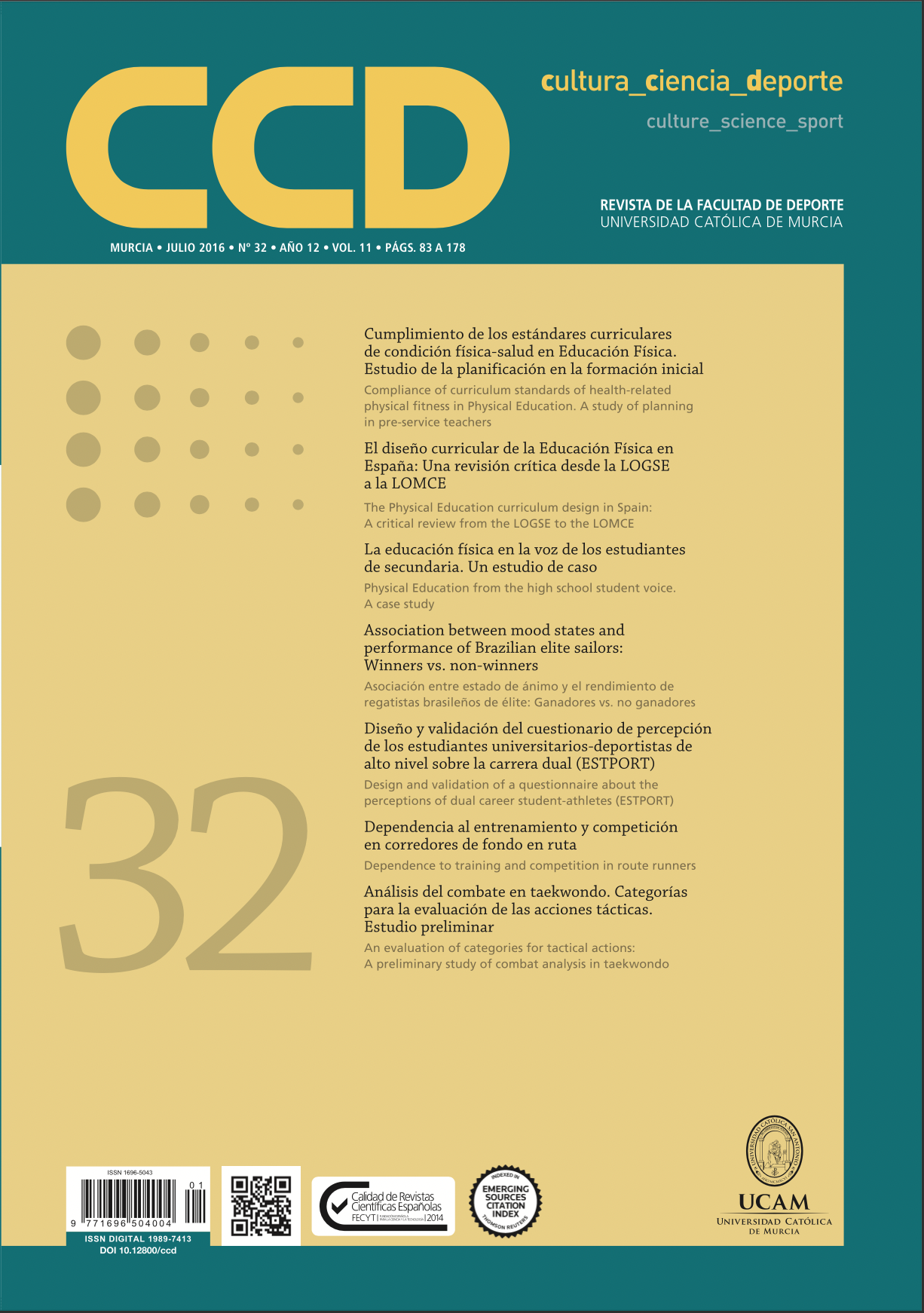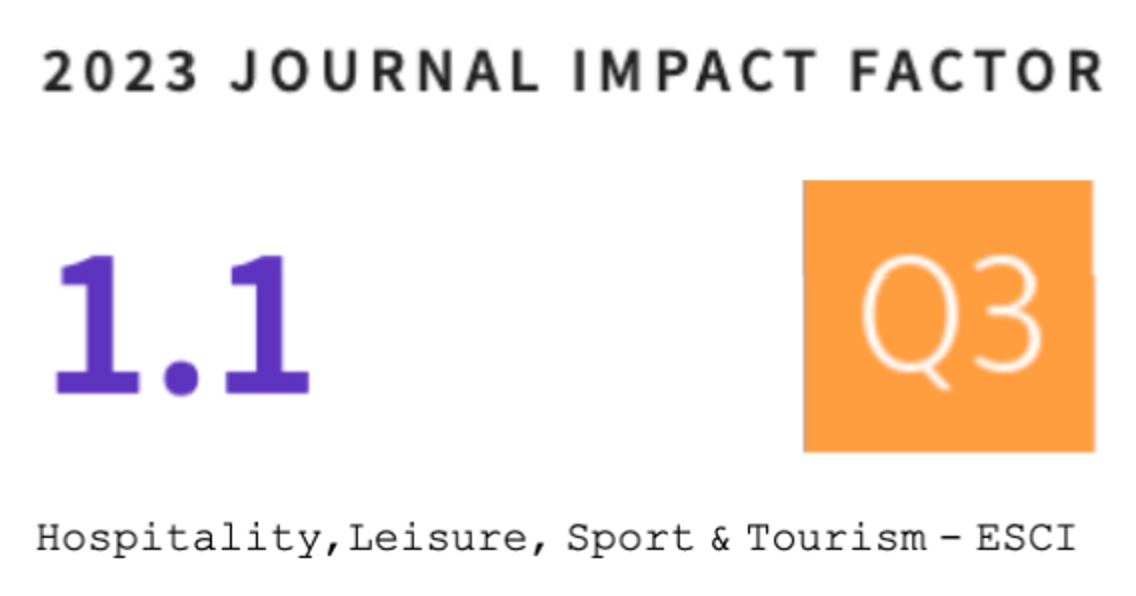Dependencia al entrenamiento y competición en corredores de fondo en ruta. (Dependence to training and competition in route runners).
DOI:
https://doi.org/10.12800/ccd.v11i32.714Resumen
http://dx.doi.org/10.12800/ccd.v11i32.714
En una amplia muestra de corredores de medio maratón se analizó su compromiso, su adicción negativa a correr y sus principales hábitos de entrenamiento, así como la influencia de estos últimos en su dependencia. Además de valiosos datos descriptivos de sus hábitos de entrenamiento, se obtuvo que el compromiso fue alto, sobre todo en mujeres, y la adicción negativa media, sin diferencias significativas por sexo y menor que la obtenida en estudios precedentes en maratonistas. De los datos descriptivos se concluye, por un lado, que el mayor compromiso de las mujeres respecto al de los hombres se debe al mayor tiempo que le dedican al entrenamiento y, por otro, que la menor adicción negativa se debe tanto a la mayor preocupación por buscarse entrenador y de años entrenando, como al menor número de kilómetros y días de entrenamiento por semana de los corredores de medio maratón respecto a los de maratón. De los análisis posteriores se concluye que la variable que parece tener más importancia con respecto a por qué un corredor de medio maratón pasa de ser sanamente comprometido con su práctica deportiva, a ser patológicamente adicto a ella, es el número de kilómetros que entrena cada semana, puesto que si es bajo, tanto en hombres como en mujeres, se incrementa un sano compromiso, mientras que si es alto, en hombres se incrementa su adicción negativa. En las mujeres, además del mencionado kilometraje semanal, ha resultado ser decisivo un mayor IMC para elevar el compromiso y disminuir la adicción.
Palabras clave: Compromiso, adicción, deporte individual, entrenamiento.
===
Abstract
In a large sample of half marathon runners, their commitment, negative addiction to run and main training habits as well as the influence of the latter in their dependence was analyzed. In addition to valuable data describing their training habits, it was found that the commitment were high, especially in women, and their negative addiction were middle, no significant differences by sex and lower than that obtained in previous studies in marathoners. From descriptive data we conclude, first, that the greater commitment of women compared to men is due to the greater time dedicated to training and, second, that the lower negative addiction is due both to the greater concern by looking for a coach and years training, and the fewer miles and days per week half marathon runners regarding marathon. In subsequent analysis we obtain that the variable which seems to have more importance regarding why a runner half maratón goes from being healthily committed to their sport to be pathologically addicted to it, is the number of miles that trains each week, so long as if it were low in both men and women, it increases a healthy compromise, meanwhile if it is higher in men, their negative addiction increases. In women, in addition to afore mentioned weekly mileage, it has been outlined that a greater IMC has a paramount importance to increase the compromise and reduce the addiction.
Key words: Commitment, addiction, individual sport, training.Descargas
Cómo citar
Número
Sección
Licencia
Los autores que publican en esta revista están de acuerdo con los siguientes términos:- Los autores conservan los derechos de autor y garantizan a la revista el derecho de ser la primera publicación del trabajo al igual que licenciado bajo una Creative Commons Attribution License que permite a otros compartir el trabajo con un reconocimiento de la autoría del trabajo y la publicación inicial en esta revista.














